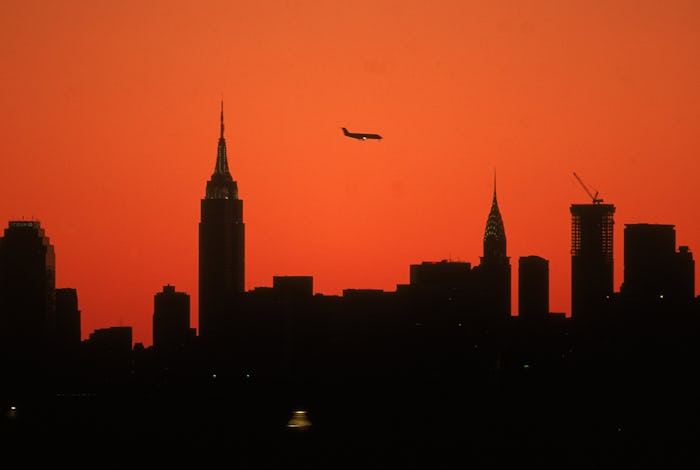News

The Top 10 Safest Towns To Raise Kids
My partner and I are still searching for a place to settle for good. As with any other family, we want our son to grow up in a safe and diverse town that has a lot of offer culturally and economically. We've perused those "best cities to live" lists, but we're never satisfied with what's offered. That's because the top 10 safest towns to raise kids might also indicate the richest and least diverse places to live.
On Monday, SafeWise, a home security system-ranking website, released its annual list of the 30 safest cities in the United States to raise a family. Like last year's ranking, the 2017 list features towns in only 12 states, with the top 10 clustered in seven of those states: Connecticut, Vermont, Indiana, New Hampshire, New Jersey, California, and New Jersey. Those 10 cities are:
- Greenwich, Connecticut
- Essex, Vermont
- Fairfield, Connecticut
- Carmel, Indiana
- Merrimack, New Hampshire
- Fishers, Indiana
- Monroe Township, Middlesex County, New Jersey
- Irvine, California
- Middletown Township, New Jersey
- Cary, North Carolina
According to SafeWise, those regions were chosen because of their low violent crime rates, low sex offender rates, high graduation rates, and overall school quality. As a mother, I understand crime and education are important factors to weigh when deciding where you will settle your family for at least 10 years. But I also understand that, while statistics give you an idea of a town or topic, they don't paint a full picture.
Compare SafeWise's list to other ones that were published this year. Review and ranking site Niche has a decidedly different take on the best towns for families. According to Niche's 2017 ranking, cities in Pennsylvania, Illinois, Indiana, Ohio, and Missouri made up the top 10 best places to raise a family (among them are suburbs of Philadelphia and Chicago, and one overlapping city). Niche had ranked these areas based on quality of public schools and benefit for families; they all received A+ grades for both qualifiers. Those cities are:
- Devon, Pennsylvania
- Clarendon Hills, Illinois
- Hinsdale, Illinois
- Franklin Park, Pennsylvania
- Winnetka, Illinois
- Carmel, Indiana
- Dublin, Ohio
- Buffalo, Grove, Illinois
- Glencoe, Illinois
- Glendale, Missouri
Then there's the top-ranked safest cities in 2017 from GoodCall.com, a consumer-focused education and personal finance website. GoodCall's safest towns to raise a family include states not included in Niche or SafeWise's rankings. Cities in Nevada, Texas, Virginia, Arizona, Nebraska, and Hawaii all made the list based on low crime rates, low auto accident fatalities, high graduation rates, high college degree rates, and good air quality. Those cities include:
- Henderson, Nevada
- Plano, Texas
- Boston, Massachusetts
- Virginia Beach, Virginia
- Chandler, Arizona
- Raleigh, North Carolina
- Lincoln, Nebraska
- Irvina, California
- Honolulu, Hawaii
- Mesa, Arizona
The disparity in the rankings goes to show that what's considered a "safe" city is entirely subjective. These lists are based on available statistics that are open interpretation by analysts who have their own prejudices. This isn't to say that Greenwich, Connecticut, doesn't deserve its top spot on SafeWise's list as the safest city in the country. It just means that Greenwich may not be the best place to raise a family, despite its safety profile.
Think about it this way: A lot of those cities that may be considered "unsafe" have been long ignored or attacked by state and federal governments. I mean, President Donald Trump said Harrisburg, Pennsylvania "looked a war zone" on the campaign trail. (FYI: It's not.)
Maybe I'm biased. I was born and raised in Brooklyn. I spent 26 of my 34 years there. But before this intense wave of gentrification that bulldozed the borough and turned it into a giant teen clothing store ad, Brooklyn was considered "unsafe" across the board. Yet, I survived, thrived, and have a strong moral compass because of what that borough gave me. (I'd be remiss if I didn't point out that the neighborhoods in Brooklyn that are now considered unsafe have historically been dismissed by city and local leadership, and have been victims of centuries of systematic racism.)
In other words: While safety lists should certainly guide you in figuring out what you want for your family, they shouldn't be the end all, be all of your decision.